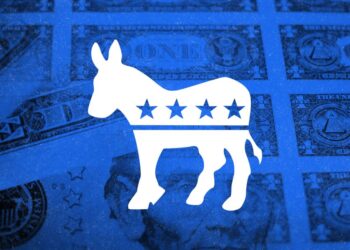According to media reports on Sunday, U.S. District Judge Aileen Cannon is likely considering arguments that mirror moves from the US Supreme Court, which could challenge the legality of Special Counsel Jack Smith’s appointment in cases against President Donald Trump. This follows a provocative question posed by Justice Clarence Thomas during oral arguments in the Trump immunity case in late April, which has garnered significant media attention.
Thomas asked Trump’s lawyer at that time, "Did you, in this litigation, challenge the appointment of special counsel?”
This question was notable because it touched on an issue unrelated to the case, suggesting a potential line of defense for Trump’s legal team, and the media is calling it Cannon’s “Curveball.”
According to media reports, legal precedents from Watergate in 1974 and Iran-contra in 1988, which upheld the powers of special prosecutors, may not fully apply under today’s legal framework and political climate.
Experts like Katy Harriger from Wake Forest University caution that although the law seems settled, the current political and legal climate introduces unpredictability.
Harriger notes that the Supreme Court’s willingness to revisit established precedents, coupled with remarks from justices like Thomas and then-appeals-court Judge Brett Kavanaugh, who expressed a desire to overturn the 1988 decision affirming the use of independent counsels, underscores this uncertainty.
Cannon has scheduled an important hearing for June 21 to examine the matter, which is unusual given that other courts have previously rejected similar claims regarding Special Counsel Robert Mueller.
The Administrative State perceives Cannon’s move as a delay tactic that only benefits Trump. The argument, spearheaded by prominent conservative lawyers, including former Reagan administration Attorney General Edwin Meese III, is that special counsels like Mueller and Smith are not authorized under the law since the Ethics in Government Act expired in 1999.
The Ethics in Government Act was a landmark piece of legislation enacted in 1978 in the United States. It was passed after the Watergate scandal to increase transparency and accountability in the federal government. The Act introduced several key provisions to prevent corruption and promote ethical conduct among government officials. Some of its major components included:
Financial Disclosure Requirements: The Act mandated that high-level federal officials, including members of Congress, executive branch officials, and judges, disclose their financial interests, income, and assets. This was intended to identify and prevent conflicts of interest.
Restrictions on Post-Government Employment: The Act established “revolving door” restrictions to limit the ability of former federal officials to lobby their former agencies for some time after leaving public service. This aimed to reduce the influence of former officials on government decisions.
Office of Government Ethics (OGE): The Act created the Office of Government Ethics, an independent agency responsible for overseeing the executive branch’s ethics program, providing guidance on ethical issues, and ensuring compliance with ethical standards.
Special Prosecutor Provisions: One of the Act’s most significant aspects was the establishment of procedures for the appointment of special prosecutors (later known as independent counsels) to investigate and prosecute high-ranking government officials suspected of serious misconduct. This provision aimed to ensure that investigations into executive branch officials could be conducted independently of the administration in power.
The special prosecutor provisions allowed for the Attorney General to request the appointment of a special prosecutor by a three-judge panel of the U.S. Court of Appeals for the District of Columbia Circuit. The special prosecutor had broad authority to investigate and prosecute government officials and was intended to operate independently of the Department of Justice to avoid conflicts of interest.
The Ethics in Government Act was amended and reauthorized several times but faced criticism over the years. Critics argued that the special prosecutor provisions could lead to politically motivated investigations and overreach. In response to these concerns and other issues, Congress allowed the special prosecutor provisions to expire in 1999.
Despite the expiration of the special prosecutor provisions, the Ethics in Government Act has impacted federal ethics and transparency policies. The Office of Government Ethics continues to play a key role in maintaining “ethical standards” in the executive branch, and the financial disclosure requirements remain a critical tool for preventing conflicts of interest among federal officials.
According to the Republican theory, special counsels are "principal” officers who must be confirmed by the Senate, which Mueller wasn’t, and Smith isn’t.
Despite these assertions, past rulings have affirmed the legality of such appointments. For instance, claims challenging Mueller’s appointment were rejected by two U.S. district judges, including a Trump appointee, and later unanimously by a three-judge panel of the U.S. Court of Appeals for the D.C. Circuit. These judges ruled that Mueller was an "inferior” officer who served at the pleasure of an Executive Branch officer appointed with Senate consent, thus legally appointed by the acting attorney general.
However, these decisions are not binding on Cannon as the Supreme Court did not rule on them. Cannon’s decision to grant this issue a high-profile and unusual hearing has raised concerns that the current conservative-leaning Supreme Court might view the problem differently, adding uncertainty to the outcome. This is particularly significant given the court’s current composition, which includes justices who have previously expressed skepticism towards the modern administrative state and the appointment of special counsels.
Trump critics argue that the Supreme Court’s decision to entertain Trump’s immunity claims, despite unanimous rejection by an appeals court panel, caused substantial delays in his Jan. 6 prosecution. However, the court may be more inclined to set new legal guardrails rather than entirely exempting Trump from prosecution. Nonetheless, as Cannon’s controversial decision suggests, the idea that the Supreme Court might invalidate Smith’s appointment as special counsel remains a significant concern. This possibility, fueled by the ongoing legal and political battles, highlights the contentious nature of Trump’s cases and the broader implications for the special counsel system.





WHY CAN’T @SpeakerJohnson approach Rescinding Both @Stevebannon01 and @RealPNavarro Contempt charges with how @TheJusticeDept handled @MarkMeadows and @DanScavino ??? https://www.politico.com/news/2022/06/03/doj-declines-to-charge-meadows-scavino-with-contempt-of-congress-for-defying-jan-6-committee-00037230